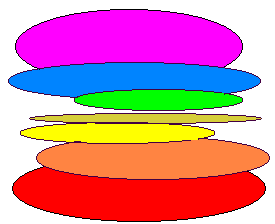
Consilience: The Unity of Knowledge by Edward O. Wilson.
The sciences, from mathematics to physics to chemistry to biology, inform and support each other in a great consilient world view. That view reaches from cell biology to cosmology in scale.
Dr. Wilson argues that genes and multiple gene interactions that predispose behavior that builds culture are selectable. This Darwinian process, the genetic fitness hypothesis, "has been reasonably well borne out by the evidence" (p. 172). The weakness of the theory is the scarcity of research, now underway in the emerging field of behavioral genetics. Very probably, as this research develops a loose consilience of arts and humanities based on genetics will link physics to human thinking and group psychology.
Dr. Wilson concludes "(t)here is abundant evidence to support and none absolutely to refute the proposition that consilient explanations are congenial to the entirety of the great branches of learning"(p. 266).
Tower of Babel. The Evidence against the New Creationism by Robert T. Pennock
Includes a history of creationism and explores the arguments employed by the different creationist factions. Pennock discusses the way creationist arguments depend on a complete restructuring of all the sciences. "As we have seen, the consistent creationist attacks not just biology, but also linguistics and almost every other science as well. The hard-won discoveries of astrophysics, geology, agronomy, medicine, and on and on are all labeled false and are to give way to the "True Science" that is revealed by Scripture. But now we see that it goes even beyond this. The creationist holds not only that we must reject well-established conclusions of these sciences but also...that we must set aside the method of science itself." (p.179)
Tower is another one of the many books I wished I owned instead of borrowing from the library.
Updated:7/15/02